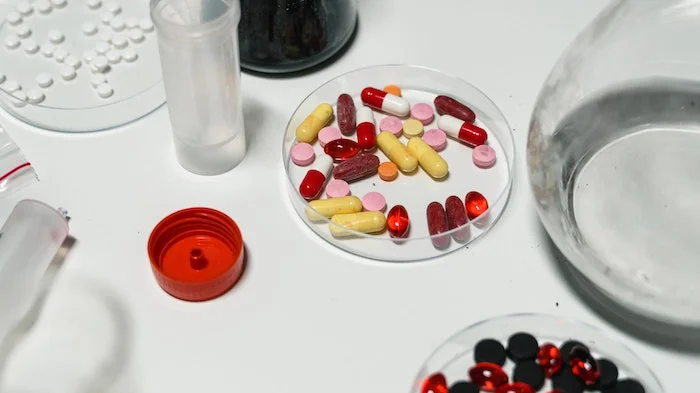Drug & Alcohol Rehab in Sittingbourne
Part of why drug rehab prompts feelings of uneasiness in many individuals is that they do not understand what the process involves.
Everything is scarier when it is mysterious, but drug and alcohol rehab in Sittingbourne is actually a very simple set of treatment stages.
For more information about drug and alcohol rehab in Sittingbourne, call us today at 0800 088 66 86.
Stage 1: Medical Detox

The first concern of drug and alcohol rehab in Sittingbourne is the body’s dependence on a substance. Physical addiction locks individuals into unhealthy patterns of usage fuelled by intense cravings, and this traps them into cyclical consumption and withdrawal.
In order to break away from drug or alcohol addiction, therefore, this physical dimension must be addressed first. To do this, consumption is slowly reduced, allowing the body to wean itself from a substance.
Over the course of 10 days, individuals are monitored by doctors who are able to adjust the speed of detox and administer medications which ease the body’s experience of withdrawal. Together, these actions maximise comfort and increase the chances of successful detox.
Stage 2: Addiction Therapy
Once the body is sober, there remains the threat of how an individual thinks and feels about substance use. Before a physical dependency is able to form, it triggers which push individuals into unhealthy consumption, and these remain dangerous after detox.
To tackle triggers, therapy is used. This treatment aims to support individuals in recognising their addictive triggers and learning how to handle them in a healthy, substance-free way. But the beauty of therapy is that it is so adaptable.
Addiction therapy can shift its focus and structure in order to support an individual in the most optimal way. Whether an individual’s addictive triggers are thoughts, emotions, situations, or people in their life, therapy can find a way to help them.
Stage 3: Relapse Prevention
Before an individual can leave drug and alcohol rehab in Sittingbourne, they must undergo relapse prevention support. While achieving physical and psychological sobriety is a great achievement, it is not enough for sustaining long-term sobriety.
Unfortunately, it is all too common for those who leave rehab to relapse and slip back into negative habits. There is no shame in relapse, but trying to prevent it can be really helpful for avoiding having to re-enter rehab.
Relapse prevention primarily equips individuals with techniques for handling the triggers identified during therapy. This work helps them protect the progress they have made during treatment and shield their minds from negative ways of thinking and behaving.
For more information about drug and alcohol rehab in Sittingbourne, call us today at 0800 088 66 86.
Addiction Therapy – A Treatment of Many Forms

Therapy is the most versatile treatment available within drug and alcohol rehab in Sittingbourne. It can work to approach a wide range of addictive triggers, and individuals can utilise numerous formats to optimise their recovery.
Some of the most popular forms of addiction therapy include:
1. Cognitive Behavioural Therapy (CBT)
Individuals can develop thought processes which consistently fuel unhealthy behaviour. Unbreakable associations between substance abuse and pleasure can develop, so CBT can be used to challenge and deconstruct such negative ways of thinking.
2. Dialectical Behavioural Therapy (DBT)
Sadness, grief, and shame are all very powerful emotions, and they can be sufficient fuels for consistent and excessive substance abuse. DBT helps individuals to talk through feelings such as these to establish better-coping mechanisms.
3. Holistic therapy
Treating specific triggers is effective, but there is a growing idea that progress can also be made via treatment which focuses on the whole individual. Using art, music, and exercise, holistic therapies boost overall well-being and support healthy habits and worldviews.
4. Motivational interviewing
Motivational interviewing can function to combat triggers, but it can also fuel individuals to maintain their effort levels in rehab. This therapy helps them identify what their goals are in life and frame their recovery as a means of achieving or attaining such dreams.
5. Group therapy
Talking to other recovering individuals can produce unbelievable results within rehab. Group therapy helps attendees feel as though they are being heard by those who understand them, and it can also show them the benefits of sticking with treatment.
6. Family therapy
If the addictive triggers exist within the dynamic and tensions of the family unit, relatives and partners can be brought into treatment. Discussions can then be had which work to settle conflicts and equip attendees for reducing the chances of future relapse.
Is Recovery Complete When Rehab has Finished?
The process of drug and alcohol rehab in Sittingbourne concludes once an individual has completed relapse prevention and returned home. This is a massive achievement and milestone, but it must be clarified that this does not necessarily mark the end of recovery.
Rehab is only the formal stage of treatment. Once an individual has achieved sobriety, there are lots of things they can do to progress further and ensure a long and healthy life.
Aftercare is abundantly available throughout the UK. Coming in so many different forms, individuals can access these treatment and therapy sessions to further their understanding of addiction and continue receiving the support that they got in rehab.
In addition to being a continuation of rehab, aftercare also functions to offer individuals a more personalised kind of support. For example, Alcoholics Anonymous sessions offer recovering alcoholics a place to talk to others who share similar experiences and concerns.
For more information about drug and alcohol rehab in Sittingbourne, call us today at 0800 088 66 86.
How Long Does it Take to Work Through Rehab?

Agreeing to take on drug and alcohol rehab in Sittingbourne is a big commitment, and one reason for this is that time away from work and family will need to be arranged. How long an individual needs to dedicate to treatment, therefore, is an important question.
For most individuals, the rehab process takes 28 days. Detox usually requires 10 days in order to fully wean the body from a substance, and therapy and relapse prevention tend to need a further few weeks in order to prepare individual for life after treatment.
However, certain individuals may find their rehab journey taking longer. This usually happens with those who have more severe conditions, pre-existing physical or mental health conditions, or a reluctance to work with recovery treatments.
Will Drug & Alcohol Rehab in Sittingbourne Cost a Lot?

As well as time, drug and alcohol rehab in Sittingbourne requires money. This is the biggest concern for many people, but getting help for a drug or alcohol addiction doesn’t necessarily have to break the bank.
The typical price for a week’s treatment in the UK is £14,000, but that is by no means the case for every facility. Prices can range between £1,000 and £10,000, with some more luxurious options rising up to £70,000 for those with higher budgets.
It’s important to note, however, that there are services available for supporting individuals in affording rehab. Councils around the UK can offer funds for people who are unable to pay for rehab, and these can make all the difference in getting the right help.
For more information about drug and alcohol rehab in Sittingbourne, call us today at 0800 088 66 86.
Withdrawal: The Biggest Danger of Addiction
With many addictions, the body becomes dependent on a substance and struggles to function normally without it. Physical addiction is such a serious matter because those who have developed one are at risk of experiencing withdrawal when they become sober.
Withdrawal symptoms can be incredibly dangerous, especially when it comes to substances such as alcohol and heroin. They can vary from chills and sweating to insomnia, muscle pain, and even death.
The risk of withdrawal cannot be overlooked. For this reason, benzodiazepines play a massive role in the success and safety of addiction rehab. During detox, these medications work to calm withdrawal and allow individuals to cope with sobriety.
Those who experience withdrawal when without a substance need to seek help immediately. It is one of the easiest ways to detect when an addiction has developed, and the consequences of not getting support could be fatal.
Spotting an Addiction – Knowing the Warning Signs

Aside from withdrawal symptoms, there are few obvious signs to indicate when an individual has developed an addiction. Substance misuse tends to gradually arise, making it hard to tell when an individual is using a drug or alcohol recklessly or not.
However, there are subtle warning signs which indicate when consumption has or is about to become seriously unhealthy. These include:
- Consuming a substance on a daily basis or multiple times a day
- Obsessively talking about a substance
- Performing poorly at school or work due to substance consumption
- Consuming a substance in inappropriate settings, particularly in public
- Allowing consumption habits to overtake hobbies or relationships in significance
- Losing interest in hygiene or appearance upkeep
- Slipping into financial hardship to pay for a substance
The Work Before Drug & Alcohol Rehab in Sittingbourne
A lot of the heavy lifting associated with addiction recovery takes place within rehab. However, there are invaluable steps that must be taken before treatment even begins, and these are deserving of attention as well.
1. Accepting that there is a problem
Way before treatment can begin, an individual must first acknowledge the fact that they have an addiction which requires support. This may sound simple, but denial is recognised as being synonymous with addiction, and so many can struggle to see the issue. [1]
As a result, just admitting that they have an addiction is a huge step for addicted individuals. It requires brutal honesty and courage, and it is such an important step in the journey of recovery that it cannot be overlooked.
2. Asking for help
Once an individual has accepted their situation, they are faced with another huge obstacle: asking for help! If admitting to an addiction takes courage, then speaking to someone else about it is equally demanding. But individuals have several options to which they can turn.
Family and friends are often the best places to start. Tell someone close to you that you need help, and they can give you the strength and support to ask someone who can help you further your search for help.
These people can be doctors and GPs, or they can be addiction support charities. Here at Rehab Recovery, we are always on hand to help answer your questions and guide you towards the treatment you need.
3. Getting into treatment
The final step is to enrol on a treatment programme and get recovery underway. However, this step can take research and compromise if the right support is to be found.
Often, doctors can help point individuals in the right direction here.
With a treatment plan found, all that remains is to organise a start date and begin rehab. Again, this can take a lot of strength, so make the enrolment day as easy as possible by taking a trusted friend or relative with you to the facility.
For more information about drug and alcohol rehab in Sittingbourne, call us today at 0800 088 66 86.
What’s the Best Way to Encourage Someone into Rehab?

If you spot some of the warning signs of addiction in the behaviour of a friend or family member, it’s only natural that you will want to help them. How you might be able to do that, however, can be less clear.
Convincing someone with an addiction that they have a problem and are in need of medical support can be a massive challenge, but there are options available for attempting it.
1. A quiet one-to-one chat
The most basic strategy to follow is to simply approach the individual and ask them about their substance use. Have they noticed it changing recently? How long have they gone without consuming? Are they under the influence at this moment?
With this approach, it is really important to maintain a gentle and caring approach. The individual must understand that your questions are coming from a place of genuine concern. If they feel as though they are being judged, they will reject your concerns.
2. An intervention
If a quiet chat would not seem suitable, the next option is to host an intervention. These are a much more obtrusive method, however, they are often needed if an individual cannot be reasoned with via a one-to-one conversation.
With an intervention, family and friends organise themselves to meet at a time and place to confront the individual about their substance use. Everyone offers their reason for being there and their support, all in the hope of communicating the severity of the situation.
Interventions are recognised as being incredibly effective at preventing substance use conditions from developing into more serious problems. [2]
An individual is not guaranteed to listen to the concerns of an intervention, but these events have the power to exact consequences for not doing so. Attendees can set restrictions on an individual’s life, communicating to them that their behaviour cannot continue.
3. Intervention alternatives
The single coming together of family and friends is only the conventional format of intervention. There are alternative structures which are equally viable options for convincing an individual to seek help.
One example is CRAFT, a kind of intervention which sees family and friends working together to gradually alter the way an addicted individual thinks and behaves.
By rewarding healthy actions and punishing those who perpetuate addiction, CRAFT seeks to replace the positive associations an individual has developed with addiction and show them the benefits of seeking support and living soberly.
Reach Out to Us at Rehab Recovery

If you need more information about drug and alcohol rehab in Sittingbourne, or you just want some support about addiction recovery, we are here to help. At Rehab Recovery, we have all the information and guidance you need!
If you need us, don’t wait to get in touch at 0800 088 66 86.
References
[1] http://pure-oai.bham.ac.uk/ws/files/25519189/DENIAL_PICKARD_M_L_FINAL_PRE_PROOF.pdf


